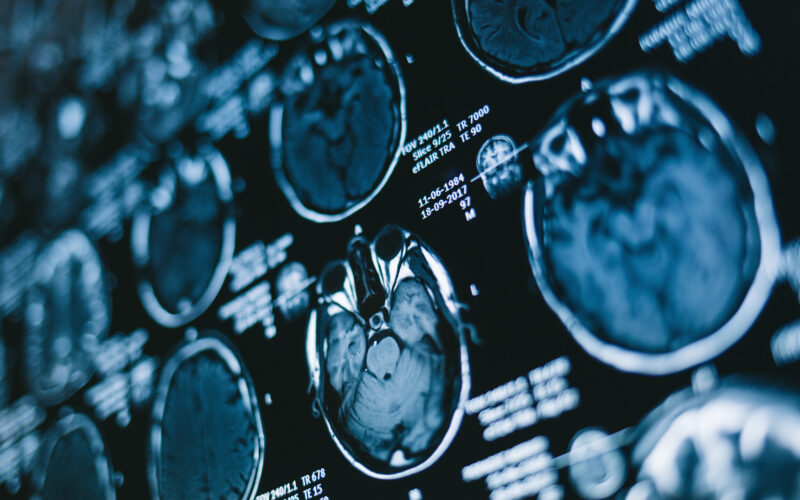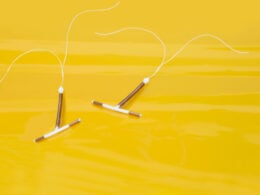On December 4, 2019, a new study was published finding brain changes in women who take hormonal contraceptives.
The findings of the study, presented at the annual meeting of the Radiological Society of North America (RSNA) found that, on average, women taking oral contraceptives had a hypothalamus that was 6 percent smaller than women who were not on the Pill.
The hypothalamus is a small part of the brain that releases hormones, regulates body temperature, controls appetite, manages sexual behavior, and regulates emotional responses. And while, in the study, women with smaller hypothalamic volume scored no worse in cognitive testing results (which measured verbal learning and memory, executive function, and working memory), they did score higher on anger and depression measures than women with larger hypothalamic volume.
A 6 percent decrease is no small amount. For example, in a patient with Alzheimer’s, the hippocampus may lose 3 to 4 percent a year.
We already know that there is a small, yet well-established connection between hormonal contraception use and depression and suicide. Could the brain changes observed in this study be responsible for that connection? The short answer from Dr. Lipton is, “I can’t tell you what it means in terms of how it’s going to affect people.” He cautions that the study is highly preliminary, but that the “strong association” found between hormonal contraception use and brain volume “should motivate further investigation into the effects of oral contraceptives on brain structure and their potential impact on brain function.”
Birth Control That’s Hurting Women
This is shocking news to say the least. For decades, thought leaders have lauded birth control as a liberating agent for women, freeing women to postpone having children in order to pursue education and career advancements. For many, it was a cultural force signaling that women could be valued beyond their ability to have children—that society also valued women for their brains, and for what they could accomplish by using them in the workforce. In this context, the RSNA study should bring us particular pause.
Pharmaceutical birth control is certainly harder to champion as an agent for women’s advancement if it is actively damaging their brains. While hormonal contraceptives were intended to serve women’s flourishing, with each new risk or side effect research uncovers, it becomes increasingly obvious that hormonal contraceptives may, in fact, be stunting the flourishing of countless women. Obvious examples of this include physical health risks like blood clots and cardiovascular events, which take an estimated 300-400 U.S. women’s lives annually. But for the majority of other women who take birth control and live to tell about it, many have less obvious side effects on their mental health, such as depression, anxiety, suicidal thoughts, even psychosis, not to mention the often cited condition of just “not feeling themselves.” The problem with psychological side effects is often the person experiencing them may not be able to draw the connection to the hormonal contraceptive they’re taking, until they come off the drug and notice the relief. As a result, these side effects can be hard to quantify. In contrast, this study’s findings—that women on hormonal birth control have 6 percent less volume in a part of their brain—is very concrete and hard to dismiss.
Similarly, Dr. Sarah Hill’s recent book How the Pill Changes Everything: Your Brain on Birth Control explores data on how women on hormonal contraceptives experience side effects that are hard to deny. Both the RSNA study’s researchers and Dr. Hill have called for more research to be conducted, so that women may have more information to guide their healthcare decisions. But we arguably have enough information already.
Safer Methods of Birth Control
Fortunately, women do not have to take brain-altering synthetic hormones in order to postpone children or practice effective methods of family planning. Natural methods of preventing pregnancy are available at similar or better typical effectiveness rates than the Pill, and they’re called Fertility Awareness-Based Methods (FABM). You may not hear about them over pharmaceutical advertisements, but an app based on FABM called Natural Cycles was FDA-approved as the first ever digital contraceptive this past year, and earlier this year the CDC shared that certain Fertility Awareness-Based Methods can be as high as 98 percent effective in pregnancy prevention.
There are numerous Fertility Awareness-Based Methods including the Creighton Model, Sympto-Thermal Method, Billings Ovulation Method, Marquette Method, and others. Sometimes called Natural Family Planning (NFP), evidence-based methods of fertility awareness charting must be taught by a certified FABM instructor in order to reach the high effectiveness rates of pregnancy prevention. While learning how to effectively practice natural family planning, women learning FABM will also benefit from increased knowledge about their bodies, menstrual cycles, and overall health.
Women using Fertility Awareness-Based Methods of family planning can trust these methods will not alter their brain or mental health. What’s more, they can benefit from improvements in knowledge, agency, and health awareness.
References
Radiology Society of North America, “Study Finds Key Brain Region Smaller in Birth Control Pill Users,” December 4, 2019.











